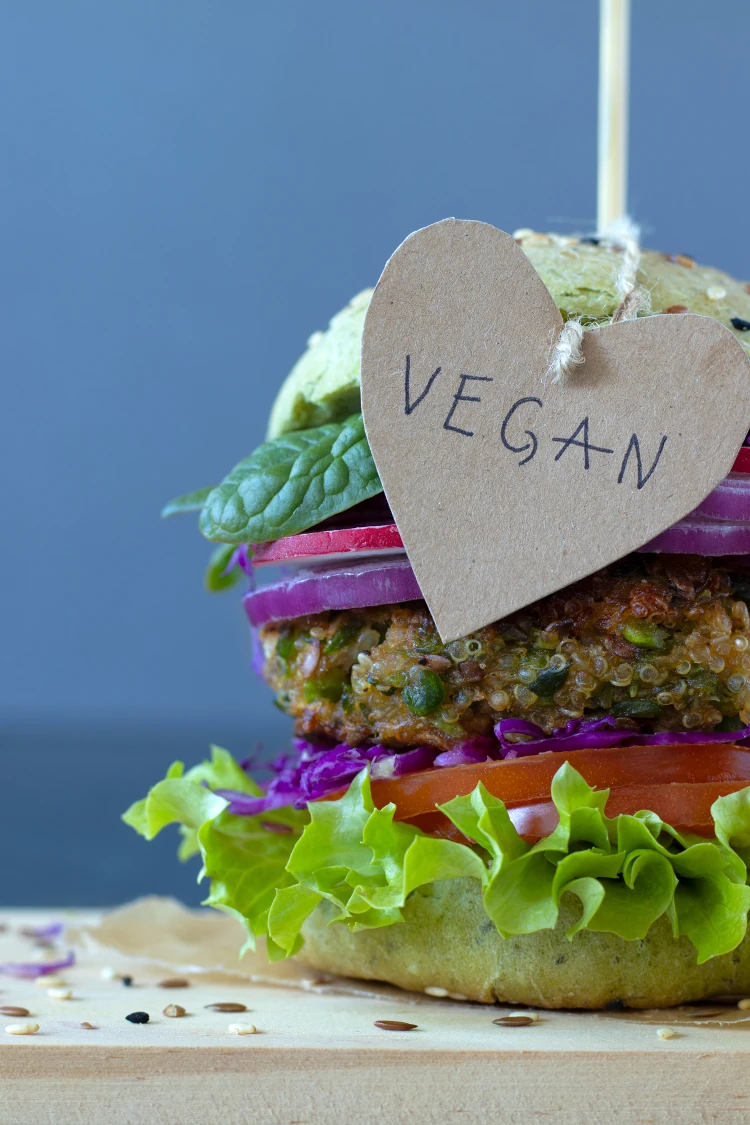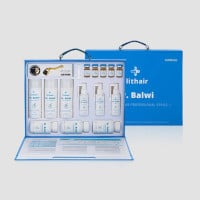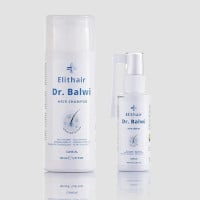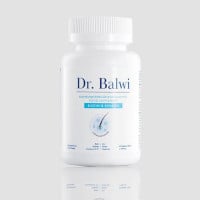
Understanding the Vegan Diet and Hair Loss
More people are voicing concerns about hair loss — and even experiencing hairline dysphoria — after switching to a vegan diet, especially those new to plant-based eating. While these experiences can be unsettling, they highlight the growing awareness of how nutrition affects hair health.
A well-planned vegan diet supports overall wellness and aligns with ethical and environmental goals. Like any eating plan, though, it can fall short if certain nutrients are consistently missed. Even the most health-focused changes can have side effects when key vitamins and minerals are lacking.
Is Hair Loss More Common on a Vegan Diet?
Research doesn’t confirm that vegans lose hair more often than people who eat animal products. Still, certain nutrients that support hair growth — like iron, vitamin D, and zinc — can be harder to maintain at optimal levels without animal-based foods.
Clinical studies have found that patients with diffuse hair loss often show significantly lower levels of the iron-storing protein ferritin and vitamin D compared to healthy controls. In one study, over 20% of hair loss patients had low ferritin, while nearly 80% were deficient in vitamin D. Meanwhile, zinc levels were statistically similar, although a small number of patients did present with mild deficiency. Similar results were reported in other analyses comparing nutrient levels in individuals with chronic telogen effluvium and female pattern hair loss.
Though hard data is scarce, there seems to be a connection between going vegan and shifts in hair health, particularly when transitioning to a plant-based diet. Ultimately, these effects are often tied to early nutrient imbalances. Temporary shortfalls in minerals such as zinc can sometimes play a role, particularly when meals aren’t yet nutritionally complete.
Hair shedding linked to diet usually happens when gaps persist for a long period of time. But it’s often more than just one thing — genetics, stress, hormones, and health history all matter, too.
Essential Nutrients for Hair Growth — and Where Vegan Diets May Fall Short
Hair growth relies on steady access to specific nutrients, including protein, iron, B12, zinc, omega-3s, vitamin D, and biotin. When these nutrients are low, the body may conserve resources for more urgent needs and let hair growth slow down.
Some of these essentials aren’t as easy to get from plants. Vitamin B12, for example, doesn’t occur naturally in plant-based foods, and humans don’t absorb iron from plants as well as from meat. That’s why food variety, fortified products, and supplements are often part of the vegan routine.
Let’s take a closer look at each one and how to stay covered.
Protein: The Building Block of Hair
Hair is mostly keratin, which is a protein. When your protein intake drops, hair may grow more slowly or shed more easily. It’s possible to get enough protein as a vegan without eating any animal products, but doing so takes some intention.
Lentils, tofu, tempeh, seitan, chickpeas, and quinoa are all solid choices. If whole foods alone aren’t cutting it, vegan protein powders or fortified snacks can also help.
Vitamin B12 and Iron Deficiency Risks
Vitamin B12 supports red blood cell production and helps with cellular repair, which are both key for hair health. Since animal foods are the only natural sources, vegans need to rely on fortified products like nutritional yeast or use a reliable supplement.
Iron helps carry oxygen to your scalp and follicles. And even though the body doesn’t absorb iron from plants as well as from meat, pairing it with vitamin C-rich foods — like citrus or bell peppers — can improve absorption.
Omega-3 Fatty Acids and Healthy Scalp Function
Omega-3s help soothe inflammation and keep the scalp balanced, both of which support strong follicles and hair retention. If these are missing from your diet, your scalp might get dry or irritated over time.
Chia seeds, flaxseeds, walnuts, hemp seeds, and algae-based supplements are all excellent ways to meet your omega-3 needs without animal products.
Signs Your Hair Loss May Be Diet-Related

If you’re seeing more hair on your pillow, in your brush, or clogging the drain, your diet might be one of the causes, especially if it’s been lacking in key nutrients. Diffuse thinning, slower growth, or hair that breaks easily can all be red flags.
These signs often come on gradually. And because hair takes time to cycle through its growth phases, you may not notice changes right away.
Tracking your meals or using a nutrient-focused app can help spot missing elements. If the problem sticks around, getting bloodwork can give more insight.
Supporting Hair Health on a Vegan Diet: Best Practices
Plant-based eating can absolutely support overall health, including hair health. Variety is important. Mix up your meals, and include nutrient pairings that make absorption easier.
Hydration, stress management, and whole food choices are just as relevant as supplements. And if your meals lean heavily on processed vegan options, dialing that back can help, too.
Smart Supplementation Without Overdoing It
Some common supplements that support vegan hair health include:
- Vitamin B12 is a must-have for blood function and energy. Without enough B12, cell division and oxygen delivery to the scalp may be compromised.
- Vitamin D is helpful for immunity and hair follicle health. Deficiencies are common, especially in low-sunlight regions, and may correlate with hair thinning.
- Iron is useful if a deficiency is confirmed. Low iron stores are one of the more frequent causes of shedding in vegan individuals.
- Omega-3s come in algae-based versions, which can work well for vegans. These support scalp hydration and can reduce inflammation around hair follicles.
Supplementing wisely makes a difference, but more isn’t always better. Check with a healthcare provider before starting high doses, especially if you’re unsure whether you need them. Some trending remedies, like aspirin for hair growth, have also made headlines, but the science behind them is still under review.
Whole Foods That Support Hair Health Naturally
Certain whole foods are especially good for supporting healthy hair, and adding them to your weekly routine can be simple and effective:
- Pumpkin seeds are packed with zinc for scalp support. Zinc plays a role in hair tissue repair and helps maintain the oil glands around hair follicles.
- Avocados are rich in vitamin E, which helps with blood flow. Good circulation brings more nutrients to the hair roots.
- Sweet potatoes are loaded with beta-carotene, which becomes vitamin A. This supports cell turnover and helps keep the scalp healthy.
Embracing seasonal produce is one easy way to keep meals varied and nutrient-rich. A rotating selection of colorful, whole plant foods adds both flavor and function to your hair care efforts.
When To See a Professional About Hair Loss
If you’ve made dietary changes but aren’t seeing a difference in your hair, it might be time to get input from a dermatologist or trichologist. They can check for health conditions that affect hair growth. Additionally, hair loss that comes on suddenly or becomes extreme should never be brushed off. Early attention often leads to better outcomes.
Medical therapies like platelet-rich plasma (PRP) or prescription treatments may be an option. In cases of permanent hair loss, hair transplant surgery can be explored as a long-term solution, but it’s rarely the first step.
Most professionals recommend exhausting non-invasive options first — like correcting nutritional deficiencies, managing underlying health conditions, or trying topical treatments — before considering surgery. When used appropriately, though, a hair transplant can restore density and confidence, especially in cases where shedding has become chronic or severe.
If you’re interested, you should explore the cost of hair transplants and compare before-and-after results to understand what the procedure involves and whether it’s the right fit for you.


